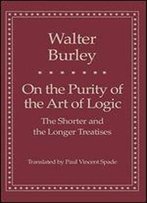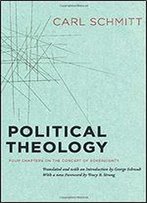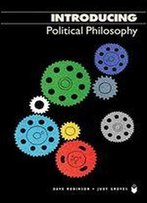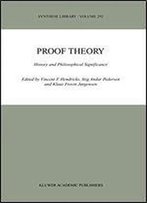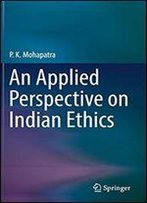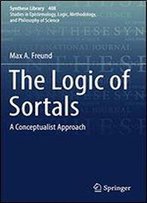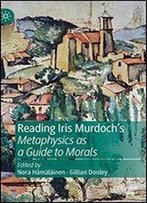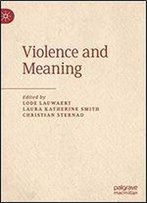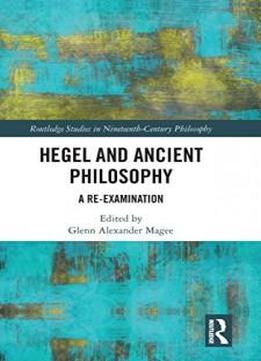
Hegel And Ancient Philosophy: A Re-examination (routledge Studies In Nineteenth-century Philosophy)
by Glenn Alexander Magee /
2018 / English / PDF
1.9 MB Download
Hegel’s debts to ancient philosophy are widely acknowledged by
scholars, and by the philosopher himself. Roughly half of his
Hegel’s debts to ancient philosophy are widely acknowledged by
scholars, and by the philosopher himself. Roughly half of hisLectures on the History of Philosophy
Lectures on the History of Philosophy is devoted to
ancient philosophy, and throughout his work Hegel frequently
frames his positions in relation to the thinkers and movements of
antiquity. This volume presents original essays from leading
scholars dealing with Hegel’s debts to ancient thinkers, as well
as his own, often problematic readings of ancient philosophy.
While around half of the chapters discuss Hegel’s treatment of
Aristotle―a topic that has long been at the forefront of
scholarship―the other half explore his relationship to such
ancient figures as Xenophanes, Anaxagoras, Socrates, Plato,
Sextus Empiricus, and the Stoics. The essays challenge a number
of longstanding scholarly assumptions regarding, for example,
Hegel’s denigration of the "mythical," his developmentalist
approach to ancient thought, his conception of the state in
relation to the Greek
is devoted to
ancient philosophy, and throughout his work Hegel frequently
frames his positions in relation to the thinkers and movements of
antiquity. This volume presents original essays from leading
scholars dealing with Hegel’s debts to ancient thinkers, as well
as his own, often problematic readings of ancient philosophy.
While around half of the chapters discuss Hegel’s treatment of
Aristotle―a topic that has long been at the forefront of
scholarship―the other half explore his relationship to such
ancient figures as Xenophanes, Anaxagoras, Socrates, Plato,
Sextus Empiricus, and the Stoics. The essays challenge a number
of longstanding scholarly assumptions regarding, for example,
Hegel’s denigration of the "mythical," his developmentalist
approach to ancient thought, his conception of the state in
relation to the Greekpolis
polis, his "hermeneutic" of the
Platonic dialogues, and his use of Aristotelian concepts in
arguments concerning the psyche, the body, and their unity and
distinction.
, his "hermeneutic" of the
Platonic dialogues, and his use of Aristotelian concepts in
arguments concerning the psyche, the body, and their unity and
distinction.

